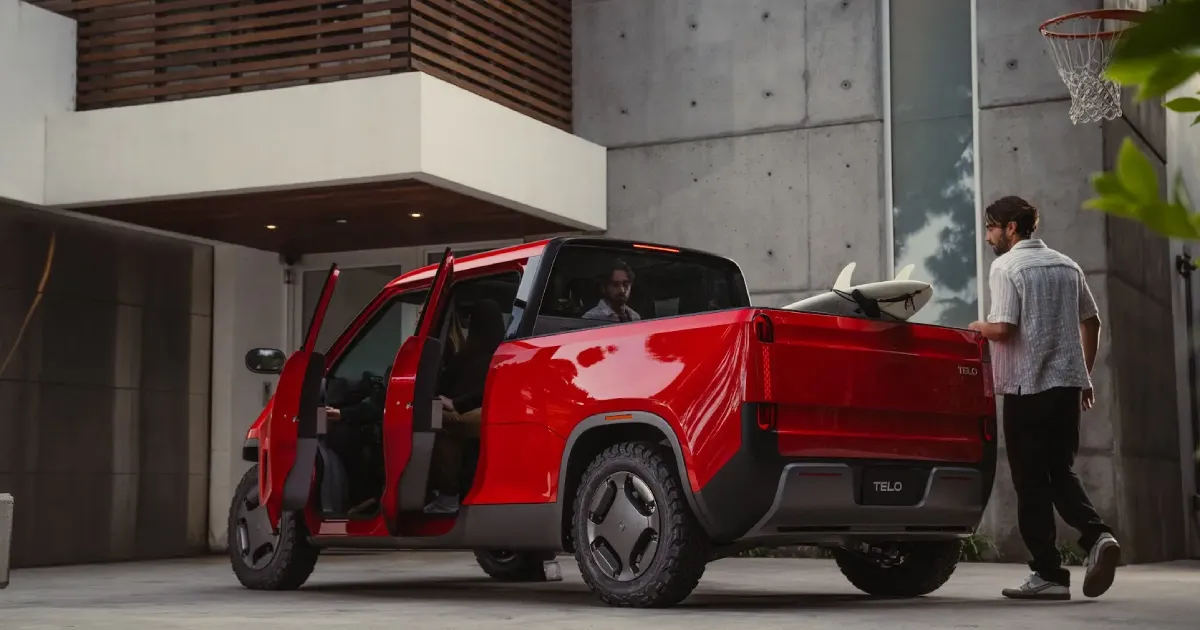Telo raises $20 million to build compact electric trucks designed for city life

Big electric trucks are struggling to find their place in the U.S. market. Tesla’s Cybertruck has been plagued by delays and criticism, Stellantis just canceled its Ram 1500 EV project, and Ford’s F-150 Lightning — once a beacon of promise — has seen sales steadily decline.
Yet America’s love affair with trucks is undeniable. Which raises a provocative question: if massive electric pickups aren’t winning over buyers, could the solution be something much smaller?
That’s the gamble being made by Telo, a California-based startup founded in 2022. Its flagship vehicle, the MT1, is a compact electric truck designed for city life. With a starting price of roughly $41,000, it isn’t exactly “small” in cost, but it aims to be the right-sized solution for urban truck buyers.
A Different Kind of Truck Startup
Telo announced this week that it has raised $20 million in a Series A funding round. The investment was co-led by Yves Béhar, a renowned designer, and Tesla co-founder Marc Tarpenning — both of whom also co-founded Telo. Other backers include Salesforce CEO Marc Benioff, along with early-stage funds such as TO VC, E12 Ventures, and Neo.
Compared to the hundreds of millions raised by EV startups like Fisker, Canoo, or Lordstown Motors — many of which later collapsed — Telo’s $20 million looks modest. But co-founder and CEO Jason Marks insists that’s the point.
“Our whole ethos is, what does it take to get to unit profitability as quickly as possible,” Marks told TechCrunch. “That’s positioned us differently than the other automakers who have come out and said, ‘Hey, we need a billion dollars to get to production.’”
Instead of chasing mass production, Telo plans to build around 5,000 MT1 trucks per year, with a pre-order list already sitting at 12,000. Production will be handled through contract manufacturing, allowing the company to remain lean with just 25 employees while relying on outside contractors and consultants with deep EV experience.
Built for the City, Not the Ranch
While many EV makers chase suburban or rural truck buyers, Telo is focusing squarely on urban drivers. Marks said the inspiration came from his own frustration with parking in San Francisco.
The MT1 is designed to maximize “performance per square foot.” Despite its small size — roughly the footprint of a Mini Cooper — it can seat five passengers and still carry a five-foot bed, which actually offers more cargo space than rivals like the Rivian R1T or Ford Maverick.
Range is another selling point. Telo claims the MT1 will achieve around 350 miles on a single charge, putting it on par with larger, more expensive EVs. That’s thanks to a 106 kWh battery pack, cleverly packaged to avoid turning the truck into, as Marks puts it, “a pallet of lithium-ion cells with seats.”
Safety, Skepticism, and the Road Ahead
A compact truck with a short front end naturally raises safety concerns. Telo plans to use its new funding to finalize crash testing and homologation for U.S. safety standards. The company aims to deliver its first trucks by the end of 2026.
For now, skepticism remains. In an industry where even $700 million hasn’t guaranteed survival, Telo’s war chest is tiny. But Marks argues that lean operations and sharp focus are strengths, not weaknesses.
The MT1 won’t win drag races — some performance is sacrificed to make the battery fit — but it could fill a niche in the U.S. market. The recent popularity of imported Japanese Kei trucks suggests there’s growing appetite for smaller, more efficient utility vehicles.
The Big Idea in a Small Package
Telo isn’t trying to reinvent America’s truck obsession — just reshape it. By betting on city-friendly trucks that are easy to park, efficient to run, and surprisingly capable, the startup hopes to sidestep the pitfalls that swallowed bigger EV dreams.
“You’re told, ‘run fast, break things,’” Marks said. “But the other Silicon Valley nature is, how do you do a ton with the smallest amount of capital and the smallest team possible? Do things that big corporations can’t do?”
If the MT1 lives up to its promises, Telo might just prove that the future of American trucks isn’t bigger. It’s smaller.





